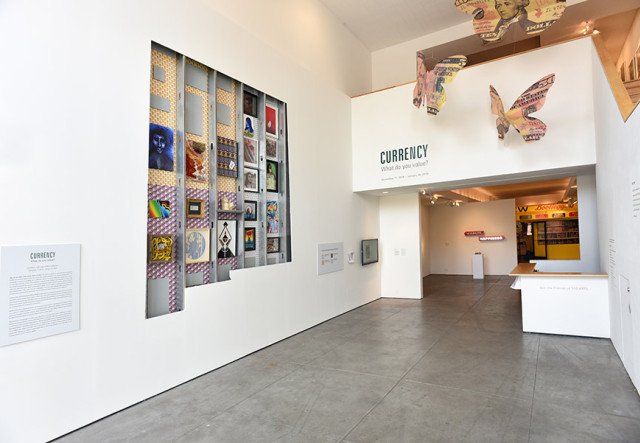
Currency: What do you value?
Currency: What do you value? is a group exhibition that asks questions about the relationship between art and money, exploring the flaws of our current economic reality. The featured artists expose the complex relationships between currency and how society values or doesn’t value art, work and time.
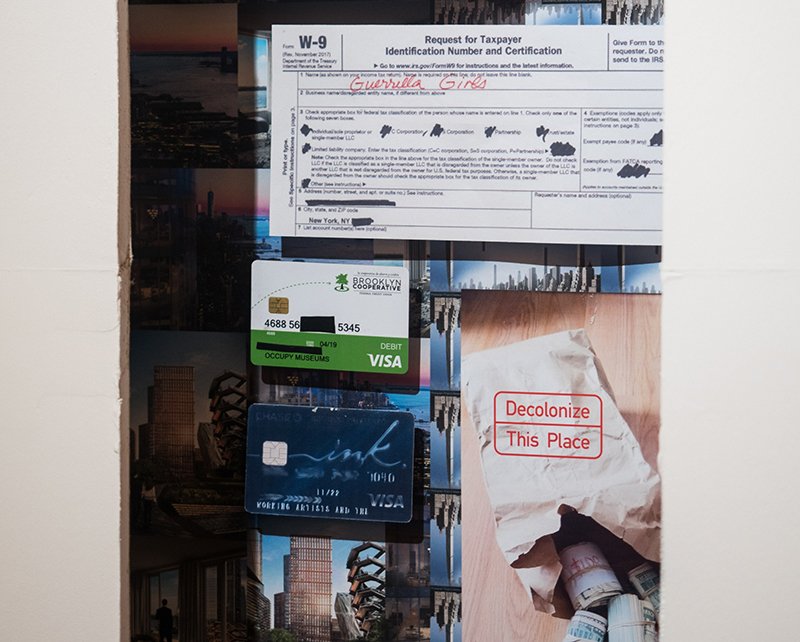
How does your economic reality affect your activism?
As social capital seems to rise for protest art in the Trump era, actual resources needed to do our work remain scarce while many channels of potential financial support are considered vulgar in relation to the purity of our practice. This is the razor thin line that activists walk within a hyper-market city and globe. So we ask, how do you make your decisions from both an ethical and practical standpoint in order to sustain? As our practices are more urgent and harder than ever, we propose this question as a pathway to deepen our analysis of the picture of power in which we are included.
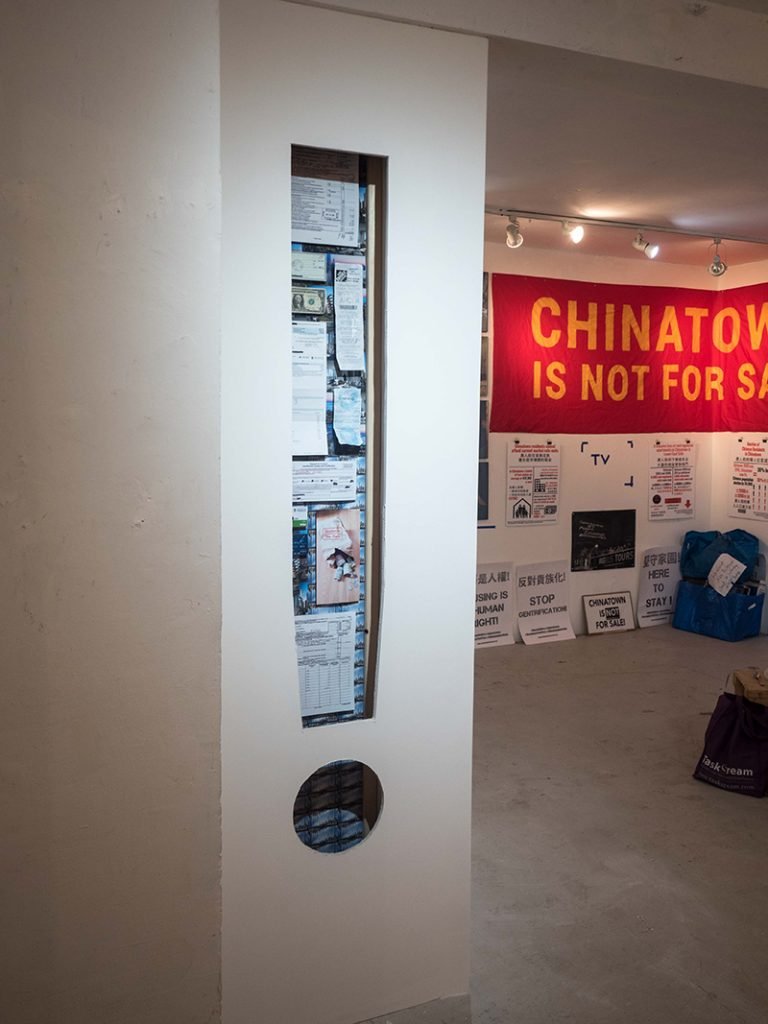
Citizen Participation: Directives and Diagrams
Continuing the focus on economic realities from our Debtfair campaign — where artist’s works are presented alongside information about their debts, jobs, and daily financial struggles— we turn to the economic realities of arts activist groups and the issue of the institutional capture of our work along with strategies for long-term sustainability.

Debtfair Bundle: artists affected by the Puerto Rican debt crisis
This project, first shown at the Whitney Museum’s Biennial 2017, is here reconceived by the artists of Occupy Museums to focus on the Puerto Rican debt crisis and the art-related debt of artists on the island. This project features works by artists Yasmin Hernández, Sofía Maldonado, Celestino Junior Ortiz, Norma Vila Rivero, Gamaliel Rodríguez, Adrian Viajero Román, Melquiades Rosario-Sastre, Nibia Pastrana Santiago, Jose Soto, and Gabriella Torres-Ferrer.

Whitney Biennial
The 2017 Whitney Biennial, the seventy-eighth installment of the longest-running survey of American art, arrives at a time rife with racial tensions, economic inequities, and polarizing politics. Throughout the exhibition, artists challenge us to consider how these realities affect our senses of self and community. The Biennial features sixty-three individuals and collectives whose work takes a wide variety of forms, from painting and installation to activism and video-game design.


Debtfair: Houston
Debtfair is an ongoing artistic campaign to expose the relationship between economic inequality in the art market and artists’ growing debt burdens, exploring the idea that all spaces function with a layer of extraction just below the surface. Occupy Museums and Art League Houston (ALH) invite Texas-based artists to reframe and exhibit their artwork within the first-realization of Debtfair to illustrate the economic realities for Texas artists and their relationships to the cultural economy at large.
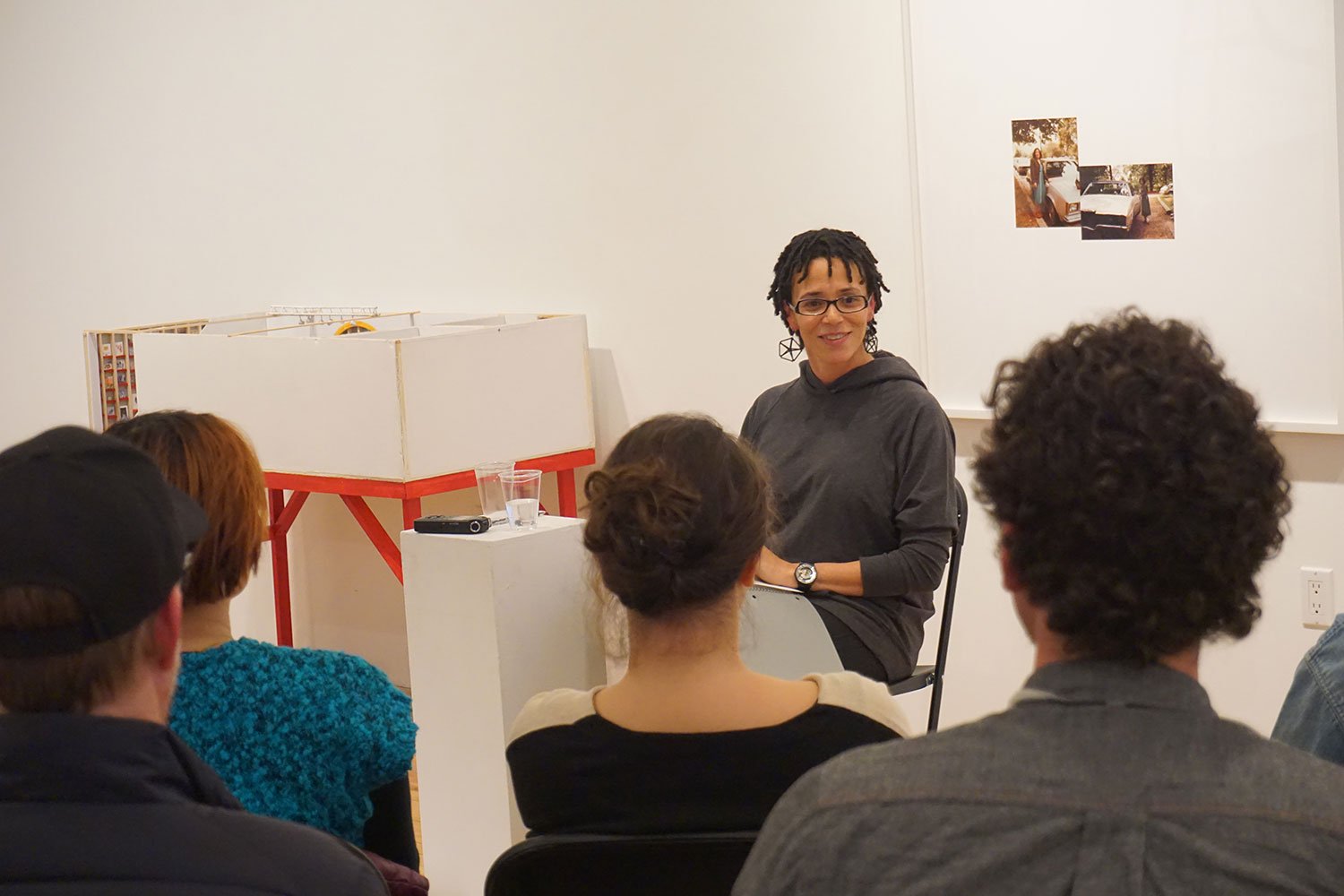
Creative Extraction: Why are Art Schools at the Vanguard of Unreasonable Debt Burdens?
A Conversation with Coco Fusco at Momenta Art
Organized by Occupy Museums
Friday, December 5, 2014, 6-8pm
In recent years, we have witnessed many art school graduates snared into unpayable debt traps through the skyrocketing tuitions paired with low earning potential. Debtfair by Occupy Museums, currently on view in the exhibition Work It Out, is a proposal for an alternative art fair that aims to alleviate the debt crisis in the Art World. While proposing a solution based on solidarity, Debtfair also examines the interconnections that exist between student debt, exploitative labor conditions in the art industry, and alliances between the art market and multinational banks and corporations.
How does the “Art World,” whether willingly or unwittingly, take part in an inter-connected web of globalizing neo-liberal economy? While the Art World frolics amid the markets of the Miami Basel Art Fairs, Occupy Museums invites artist and educator, Coco Fusco to introduce a less glamorous section of the Art World: an art education complex paralleled with global practices of labor exploitation, predatory lending, and the privatization of culture. We will discuss broader ranges of oppressive practices, including tuition hikes, predatory lending to students, and the increasing precariousness of faculty positions that parallels other service-labor.
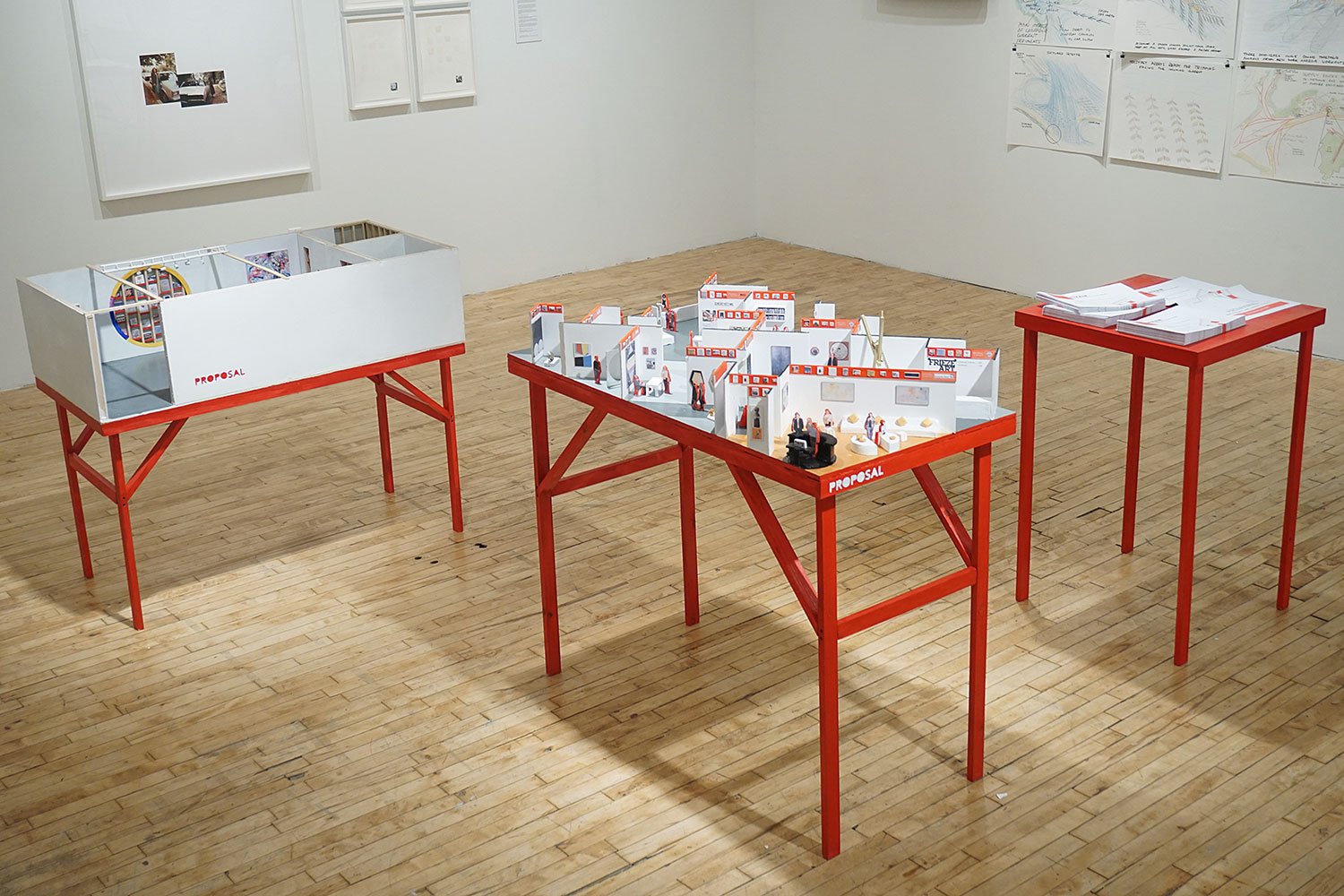
Work It out
Momenta Art is pleased to present WORK IT OUT, a group exhibition that investigates the links between labor, actualization and transformation from multiple perspectives. As Mierle Laderman Ukeles’ Manifesto was intended as a rejection of “progress” as a principle of capitalism, the Enlightenment idea of “progress” has long become objectionable in the leftist intellectual landscape. Nevertheless, the works in this exhibition resonate with, contradict, and deviate from Kojève’s interpretation of dialectic and “progress”.
